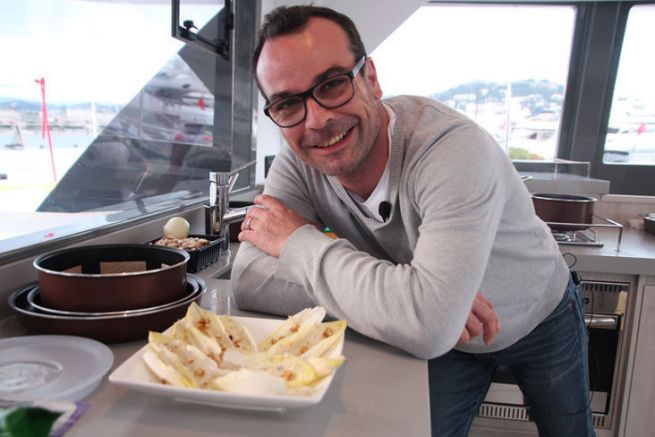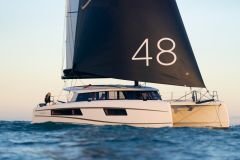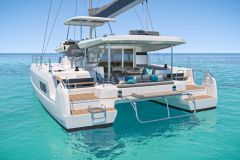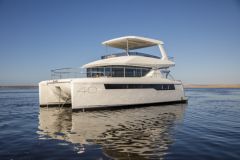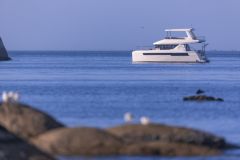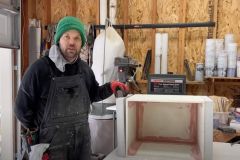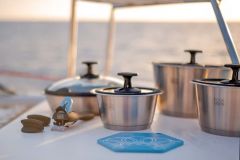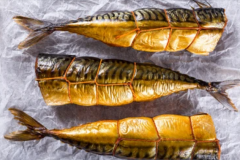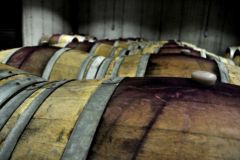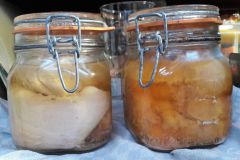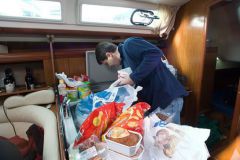For Olivier this navigation was a kind of challenge. This influencing Youtubeur didn't know if he was prone to seasickness. He also did not know the world of the boat and had to cook for 2 days for a crew of 7 people.
For this first experience, we organized a cruise on a catamaran synonymous with comfort, stability and space. This did not prevent a pan from overturning during navigation. He was thus able to test the living conditions of the sailors.
We asked him some questions about the basics of cooking on board according to him.
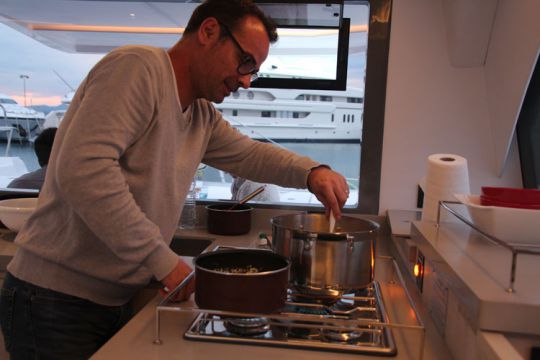
Olivier, what are the three essential kitchen accessories to have for a cruise?
Unquestionably, I will quote:
- The knife
- The Maryse
- The grater
The knife must be perfectly sharpened. No need for a large blade, a small kitchen knife is enough.
The Maryse, a silicone spatula, is very useful for "licking" dishes. My children don't like me to use it, because they have nothing left to lick the bottom of the dishes (laughs).
The grater can be used to take on board dried fruit, spices or even cheese that is grated on dishes. It's always better than freeze-dried products.
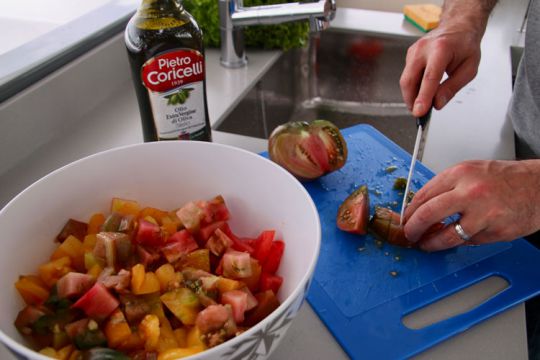
What are the three basic ingredients to always have in the kitchen of your boat?
- Pepper mill
- Olive oil
- Garlic clove
Ground pepper undoubtedly tastes different from ground pepper. Embark if possible. Similarly, olive oil is a must in the kitchen. If there was only one oil on board, I'd take this one. Finally, the garlic clove is the little touch of taste that can turn a dish upside down and make it delicious.
When sailing, it is common to fish by trolling. How to easily cook your fish?
Once the fish has been caught, scaled (for some) and gutted, the easiest way is to roll it in flour and fry it in a pan. It will form a delicious little thin crust. Avoid pricking a fork in it to turn it over, but use a shovel instead. Salt and pepper are added at the end of cooking.
If you have lemon, you can also remove the fillets from the fresh fish and soak them in the lemon a few hours before the meal. It will thus be cooked by the acidity of the fruit. You're going to enjoy it.
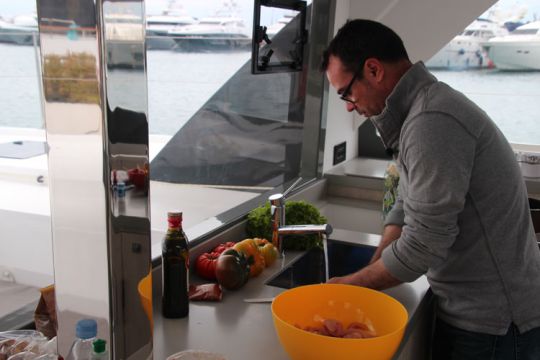
What problem did you encounter when cooking in a small space?
Even if it is not huge, the kitchen of the Leopard 45 is already large (laughs!). Cooking in a small space is a kind of return to basics. It takes organization. For that I am almost maniacal. I tidy up and clean my tools at every step of the kitchen. But this management is not going to make us eat any less well! We always bring out a dish, probably not worthy of a chef, but always good for the crew.
